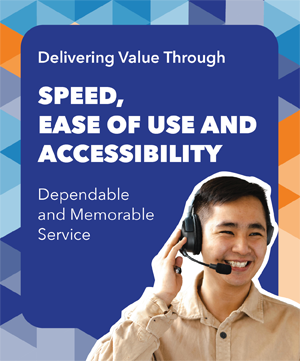Meetings, whether in person, virtual or hybrid, provide a great opportunity to build relationships while working toward a shared goal. The care you put into creating an environment where people feel welcome, included and supported is just as important as the content shared.
The advent of virtual meeting platforms has allowed us to facilitate meetings with people across the world. Below are some tips that can improve the outcomes of all meetings, regardless of how and where they are held.
Set Expectations
“Before your event starts, it has begun,” states author Priya Parker in the book “The Art of Gathering.” The time between when a meeting is scheduled and when it takes place is an opportunity to prime attendees on how to prepare.
If you know a meeting may spark debate, your communication prior should reiterate that the meeting will be a safe, respectful and trusting environment. You can share your expectations and goals ahead of time via email, then revisit them at the beginning of the meeting. You can set both behavioral and engagement expectations so no one is surprised when the rules are enforced.
Behavioral expectations: Share what behaviors are acceptable and unacceptable — and how unacceptable behaviors will be handled. For example, you might say, “Each attendee will have the opportunity to share their perspective on this change. Interruptions will not be tolerated while someone is sharing.”
Engagement expectations: Share the goal of the meeting and your expectations for the outcome. Will you solve a problem or move a project forward to a next step? Clearly define the purpose and value of the meeting. Provide materials attendees need to review in order to be prepared to engage effectively.
Engage With Attendees
Attention is highest at the beginning of a meeting. Dedicate an appropriate amount of time for the group to connect, engage and build relationships with you and each other. Below are some tips for connecting and engaging:
- Welcome each person by name as they come into the room
- Encourage collaboration throughout the meeting by asking open-ended questions
- Share the purpose for the meeting and why it’s important to your business
- Ask for opinions — especially from those who you feel are least likely to share them
Move Forward
A meeting is often just a starting point. Before you close, take a moment to pause and reflect on what just happened and how it will impact the future. Make sure everyone is clear on what is to be done by whom and when. Have the group assess whether you achieved the goal of the meeting. If not, why? What can you change to make the next meeting more successful?
Some sample assessments might include:
- Did the meeting start and end on time?
- Does the group understand how each person is impacted by the topic(s)?
- Did we keep conversations related to the goal?
- Did you set a time limit for individual topics if you truly needed to discuss each item within a given timeframe?
Meetings, when done right, can generate creative ideas while building relationships. Be intentional about how you interact before, during and after each meeting to deepen your connection and achieve your goals.
If you or your team needs any training on conducting effective meetings, either virtually or in person, please reach out to our USLI University team at [email protected]. We’d be happy to assist you in reaching your educational goals.








